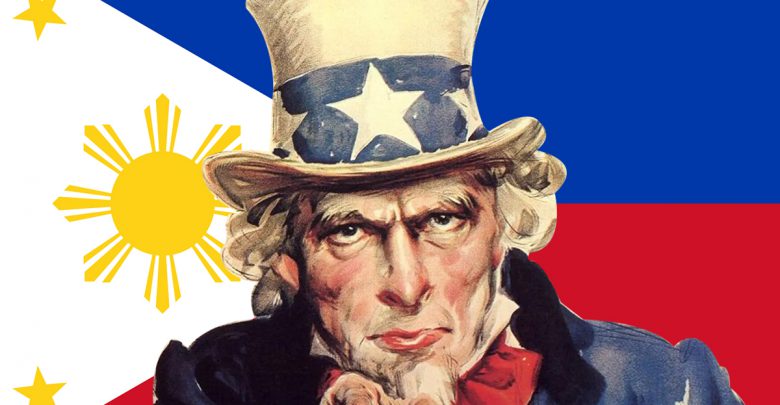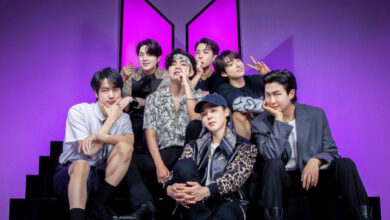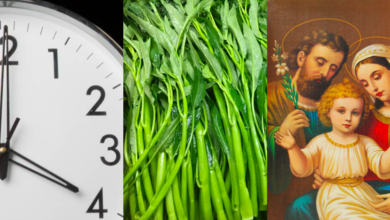
Big Brother: Why Filipinos Still Love America
Last month, a Pulse Asia survey revealed that Filipinos still place a great amount of trust in the United States. The survey showed that 84% believed that “a great deal/fair amount of trust” should be given to the Americans.
It’s also interesting to note that in the survey, Japan got a trust rating of 75% from Filipinos as well. Russia and China earned lower trust ratings, at 45% and 39% respectively.
It’s funny, when you think about it, that we now place a great deal of trust in two countries that used to be our former colonizers.
Perhaps to make up for the atrocities of war that we experienced under them, the two have been consistently providing support to the Philippines, in terms of disaster relief efforts and all sorts of development projects – this might be the reason why our trust ratings of them are so high.
One thing to note though, is the main difference between our experience of Japan and that of the US: the American way of life is so pervasive in our society, we sometimes just accept it as fact.
We have an above-average command of English (American English, in particular), our popular culture is greatly influenced by American tastes, and majority of Filipino families have friends and/or relatives who live in the US. It would be safe to say that our relationship with the US goes beyond that of trust, and extends to an ongoing fascination with them, bordering on, well, love. We simply love them.
Despite our history, vestiges of imperialism, and continued prominence of some critics of America in our society, the question beckons – Why do Filipinos still love America?
The Americans as Saviors
A lot of Filipino schools teach history this way: after 300 years of Spanish rule, the Americans came and saved us.
Yes this is an oversimplification, but after discussing the atrocities that we experienced under Spain, that’s how it’s going to seem like to young, impressionable minds.
Of course what the Americans did after “saving us” raises the question of their intentions. It was the colonial idea of the White Man’s Burden, of making sure that the “savages” knew how to make the most of the freedom that they were given. In the end, it only led to the Philippine-American War.
That, however, did not completely sour our relationship with the Americans. Our ties continued to strengthen, and we even fought side by side during World War II. Everyone knows General MacArthur, and his famed line “I shall return,” promising to save us from the Japanese.
That was the narrative: the Americans are our allies, all traces of imperialism are just a misunderstanding, and all they want is what’s best for their Little Brown Brothers.
The rhetoric is not one of colonization, but of Benevolent Assimilation – and we did eventually gain our freedom. It’s well-established that majority of Filipinos believe that the Americans gave us so much – education, industry, culture, and freedom, and this negates whatever they took from us, or whatever they gained at our expense.
Maybe it was the early vestiges of the Filipino “utang na loob,” but I think this is the main reason that we have accepted the American Way of Life so completely. They were so diplomatic, that it didn’t make sense for us to not agree to what they want.
The American Dream
Despite our imperial past, our relationship with the US has continued. It has evolved and strengthened. Some critics argue that we will never truly achieve independence as long as our country is tied with American economic and political interests.
But for the average Filipino, that is a discussion left for academics. Because who cares, really? Out of all the things the Americans gave us, the most pervasive, perhaps because it is the most hopeful, is the idea of the American Dream. At the root of it all, we love America because of this aspiration. A lot of Filipinos see the American Dream as a path to a better life, of comforts that we do not have here, of greener pastures abroad, of white picket fences in gated communities. It is a way of life that is better than what most of us face right now, and if it is aspirational for them, what more so for us?
The diaspora of Filipinos is in the context of chasing the American Dream, and this has further strengthened the relationship between our two countries. We all know someone who moved heaven and earth just to get an US Visa, work in the States, and send money back home in order to provide for their family.
What that resulted in is a complete intermingling of economic and social forces. Whatever happened in the past now means little more than material for school exams, because the reality today is that the assimilation between the Philippines and the US has come full circle.
Benevolent Assimilation
All issues have two sides, maybe even more, and this applies all too well to the relationship between the Philippines and the US. We can look at the negative all we want, but we can also choose to look at the positive.
The thing with Benevolent Assimilation is that it goes both ways. There are now thousands of Filipino-Americans, who have never been to the Philippines, and hardly identify as Filipinos. And on the flipside, there are also American immigrants who go to the Philippines, choosing to work and live here. Some of the latter invest themselves entirely, learning the language, growing roots, that they can arguably be called more Filipino than some of us.
One can argue that contexts have become wildly different from over a hundred years ago, and the effect on both countries are not comparable. But the fact remains that as humans, we will continue to do something if we benefit from it. Yes the US benefits from us, but at the same time we benefit from them, too; that’s why we keep our relationship going, and that’s why a lot of Filipinos still love America.
************
Author’s Note
Remember that there are so many factors to consider when it comes to this issue, that it is impossible for one article to cover everything. What I hoped to achieve with this is to at least put our fascination with American culture in context, which will hopefully lead to more conversations about it.
It is important to learn from the past – but at the end of the day, what matters is what you do with the present, moving forward. We have to be vigilant, and allow ourselves to love, but not to the point of obsession.
Only time will tell where this love story with America will eventually take us.





I think Filipinos envy Americans and think of them as superior. They also want to be like them and look like them. Not so much the other way around though.